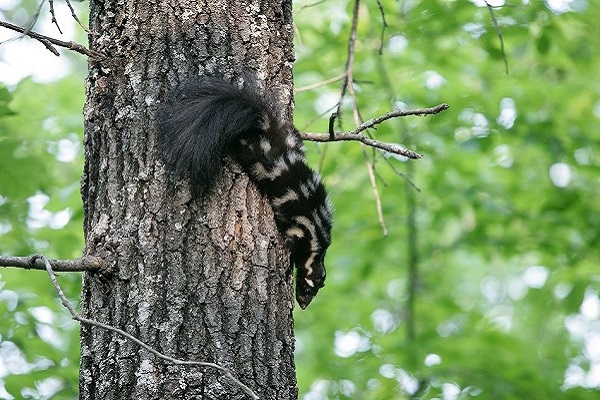
Skunks are fascinating creatures that are often misunderstood. These animals are known for their ability to spray a foul-smelling liquid in self-defense. But there is much more to them than meets the eye. For instance, you may be wondering: do skunks live alone?
The answer to this question is both yes and no. Skunks make great pets since they are relatively low-maintenance and can be trained to do tricks, like using a litter box. In the wild, skunks typically live alone or in small groups. However, they are not against living with other animals, including humans.
But, this is another topic. For now, let’s dive into the skunks’ solitary nature!
Understanding Skunk Behavior
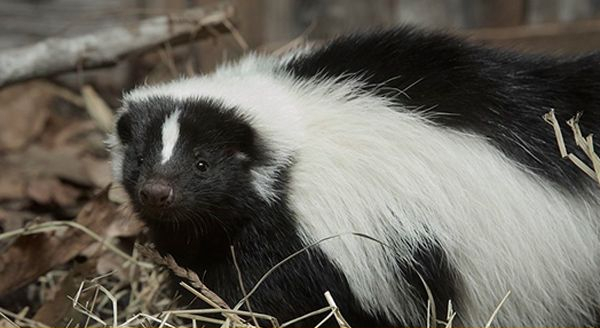
Skunks are solitary
Have you ever stumbled upon the word solitary? Most people have a negative connotation with the word. But for skunks, it simply means that skunks enjoy their own company. In other words, skunks like to live alone!
There are several reasons for this. For one, skunks are very territorial. Skunks will mark their territory with their trademark scent and fiercely defend it from other skunks. So if a skunk does encounter another of its kind, it’s likely to be an aggressive encounter.
Skunks are also nocturnal creatures, meaning they are most active at night. This is another reason skunks prefer to live alone – they aren’t on the same schedule as other animals.
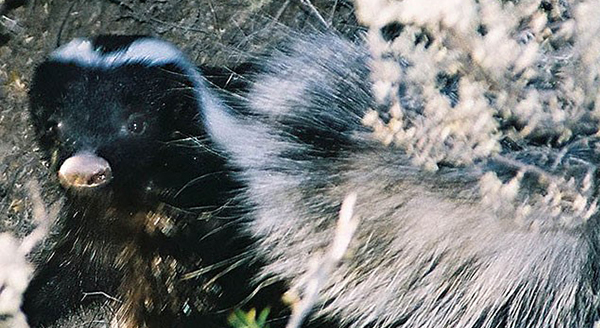
Skunk’s defensive behavior
One of the most exciting things about skunks is their defensive behavior. When a skunk feels threatened, it raises its tail and releases a bad, noxious substance from its anal glands. This substance is composed of sulfur-containing chemicals that cause an unbearable smell.
The purpose of this defense mechanism is to deter predators and other animals. And it’s very effective! The smell of a skunk can linger for days, making it hard for predators to track the skunk’s scent.
This defense mechanism is also used to ward off other skunks. As we mentioned before, skunks are very territorial animals. So if another skunk wanders into its territory, the first skunk will spray it with the noxious substance to drive it away.
The color of their fur and appearance is already a warning for other animals. This is because skunks have already gained a reputation for their spraying ability. So, other animals choose to cancel their attempt at preying on them.
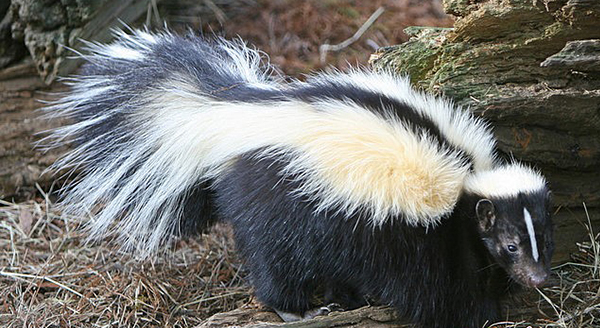
All About The Skunk Family
Skunks are wild animals about the size of house cats. There are many kinds of skunks, but the striped one is the most common. Typically found in wooded areas, striped skunks live all over North and South America. These skunks are black with two white stripes that run down their backs. They are relatively small, weighing only 4-10 pounds.
Other species include the eastern spotted skunk, hooded skunk, and hog-nosed skunk.
Skunks are the only family members of Mephitidae, along with badgers. These creatures are known for their strong sense of smell. However, they have very poor eyesight.
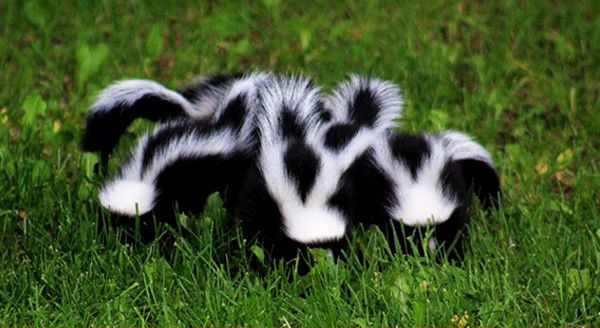
Skunk Gestation
Skunks do not mate for life. Their mating season is in the spring and summer months. After female skunks gestate for about 60 days, they give birth to 2-10 baby skunks, called kits. These babies are born blind and deaf but grow quickly. By the time they are two months old, they are fully grown and ready to live on their own.
Mother skunks raise their young for about a year before they strike out independently. Once they leave their mothers, skunks will typically live alone for the rest of their lives.
Skunk Range
Skunks are found throughout North and South America. In North America, they are most commonly found in the Midwest and Northeast. Skunks’ habitat is typically in wooded areas but can also be found in urban areas. They like to live in dens hidden from views, such as hollow trees, burrows, fallen logs, or dens made by other animals.
There are no skunks in Africa, Europe, and Asia. However, a particular mammal of Mephitidae, stink badgers, who look like skunks, inhabit Asian countries like the Philippines and Malaysia.
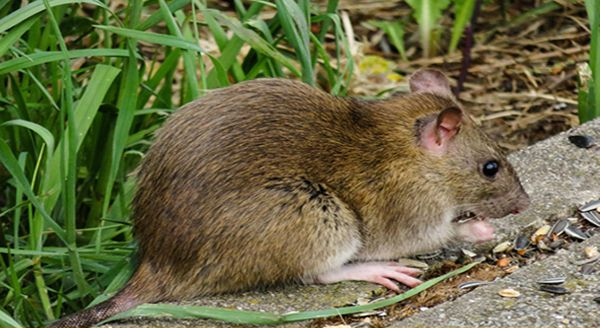
Skunk Diet
Skunks have sharp front claws when digging for worms, grubs, and insects. They are omnivores that will eat both plants and animals. Skunks typically eat meat, mice, rats, insects, eggs, fruits, and some flowers in the wild. They will also eat carrion (dead animals) if they can find it.
Species like spotted skunks are known to be proficient climbers. They climb trees to feed honey from beehives. They may also scurry up straw bales to look for hiding rodents. In captivity, skunks can be fed a dog or cat food diet, as well as fruits and vegetables.
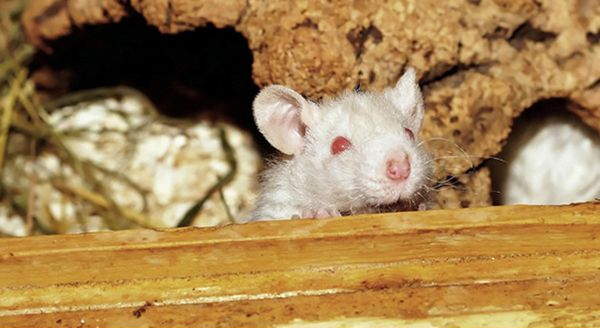
Skunk Infestation
Your house may be a better place for unwelcomed guests than you imagined. If you notice signs of a skunk infestation, the first step is to identify the source of the problem. Skunks are attracted to sources of food, water, and shelter. Once you’ve identified the source of the problem, you can take steps to remove it.
For example, if skunks are coming into your lawns because there is a food source, such as trash cans or pet food, you will need to remove that food source. If skunks are coming into your yard because there is a water source, such as a swimming pool or water bowl, you will need to remove that water source. Aside from this, skunks may also infest suburban buildings.
Skunks may infest your home if they can find a way inside. They may build dens under porches, decks, sheds, or crawl spaces. In addition, skunks are known to be diggers. They dig small holes in the ground for their den once they find porches a good spot.
Skunks may spread diseases and cause property damage. So, you must find and seal all entrance points if skunks come to your area frequently. Once you’ve done that, you can set a trap to catch and remove the skunk.
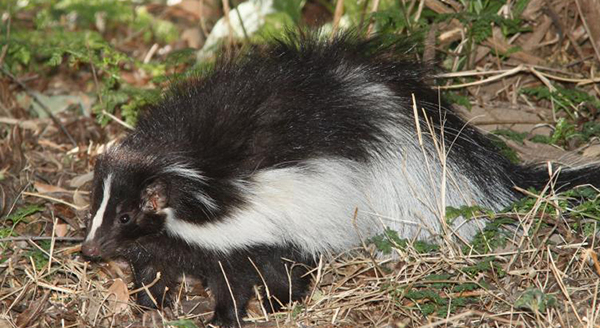
Skunk Prevention and Control
Skunks have indeed misunderstood animals. But, even though they are solitary creatures, skunks can still be a nuisance, especially when it happens many times. Their behavior, habits, and nocturnal nature can cause problems for homeowners.
AAAC Wildlife Removal will come to your rescue if you encounter a skunk infestation. Our expert technicians will safely and efficiently remove the skunks from your property. We also provide skunk prevention services to keep them from coming back!
Conclusion
The skunk is a fascinating creature that has many unique behaviors. One of the most exciting things about skunks is their preference for living alone. Skunks are very foul creatures with weak eyes and a strong sense of smell, and they are also nocturnal animals that are very territorial. These factors all contribute to skunks’ preference for living alone.
Along with their fascinating nocturnal and solitary nature, skunks accompany disturbances and damage to homes. If you encounter any skunk problems, be sure to contact AAAC Wildlife Removal for humane wildlife control!







